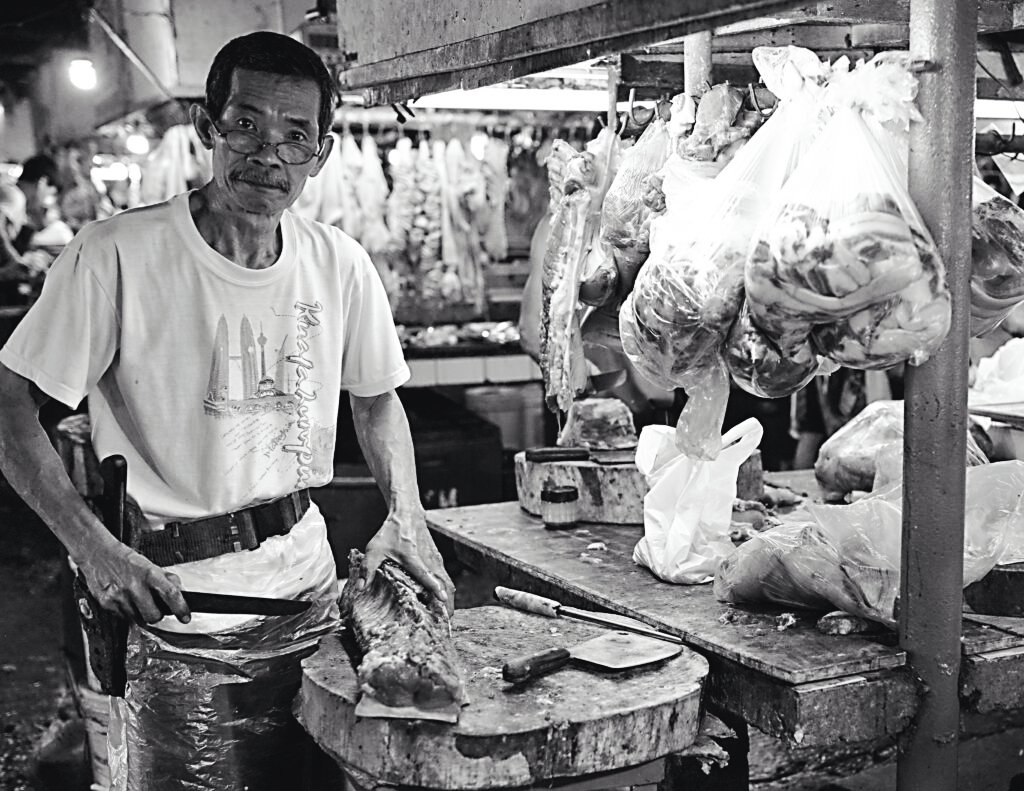
t’s not yet 6 a.m. in NEPA Q-Mart, Cubao, in the Philippines The concrete floor is already slick with meltwater and memory. Plastic tarps sway overhead like tired flags. Roosters crow from cages behind the stalls. And in Section B, where the air is thick with rawness and steam, the butcher begins his work.
He’s in his forties, maybe fifties. Stocky. Apron stiff with old blood. A walis tingting broom leans in the corner, but the real sweep here is done with cleavers and hooks. Name’s Mang Dodong—though most just call him “Boss” or “Manong.”
He sharpens his blade on a whetstone as if it’s ritual. The sound cuts the morning. Then—WHACK—a pig’s trotter is halved in one clean blow. His counter is cold steel and battered wood, painted with the day’s labor: slabs of pork, bone-white ribs, skewered innards for isaw. At the back hang a few maskara,
pale and staring—pig faces stripped and ready for sisig.
Customers come in waves and he knows them all. He knows who wants belly, who wants lean, who will haggle and who won’t. He knows how to smile just enough, without stopping the rhythm of his blade.
He works with precision: chop, weigh, wrap, grin, “Salamat, suki.”
By 9 a.m., his hands are nicked. By 11, his apron’s soaked. By noon, half his stock is gone, and the smell of vinegar and soap creeps in as vendors start to clean. But Mang Dodong stays, sharpening again, eyes scanning the next customer, ready for another day of blades, blood, and the strange, stubborn dignity
of feeding a city one kilo at a time.